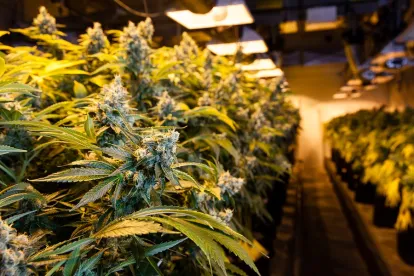Due to the COVID-19 virus-related filing and payment extensions recently announced by the U.S. Treasury Department and IRS, taxpayers now have an additional three months until July 15, 2020 – to prepare and file their 2019 federal income tax returns. Cannabusinesses of all types, particularly those involved in the manufacture and purchase of products for resale, should use their extra tax planning time to review their 2019 expenses with their tax preparers to ensure they are reducing their taxable income as much as legally permissible, given the ongoing disallowance on business expense deductions imposed by Section 280E of the federal tax code.
Cost of Goods Sold for Cannabusinesses
As this blog has covered in the past, while the IRS and courts continue to severely curtail cannabusinesses’ general expense deductions under Section 280E, companies in the cannabis industry may (and should as a matter of tax law) exclude their cost of goods sold (COGS) from their gross receipts and taxable income. Thus, depending on your type of cannabusiness involved (e.g., a cultivator versus a consultant), properly distinguishing your COGS from other general business expenses on your tax return for 2019 could result in a substantial reduction of your taxable income that the IRS might otherwise disallow if all proper COGS items are not separated from general business expenses.
Section 280E of the Tax Code
The cannabis industry’s long-running—and losing— battle against the IRS to permit deductions for all of a cannabis-related company’s ordinary and necessary business expenses recently took another hit toward the end of last year. Last October, the United States Tax Court rejected a constitutional challenge brought against the IRS by Northern California Small Business Assistants Inc., a medical marijuana dispensary legally operating under California law, that Section 280E of the tax code (the disallowance provision for general business expenses) violated the Eighth Amendment’s prohibition on excessive fines.
In rejecting the company’s argument that Section 280E violated the U.S. Constitution, the Tax Court explicitly distinguished all a business’s “ordinary and necessary” expenses under Code Section 162 from their cost of goods sold, quoting from the 2018 Alpenglow Botanicals case, also involving a medical marijuana dispensary, that in order to ensure tax on a business’s actual income rather than its sales, “the cost of goods sold is a mandatory exclusion from the calculation of a taxpayer’s gross income.”
According to the IRS, the following types of expenses are included when calculating the cost of goods sold:
-
The cost of products or raw materials, including freight;
-
Storage;
-
Direct labor costs (including contributions to pensions or annuity plans) for workers who produce the products; and
-
Factory overhead.
As long as marijuana, whether medical or recreational, remains a federally controlled substance subject to the limitations imposed by Section 280E, businesses involved in this area and their tax preparers must continue to make the critical distinctions between deductible costs of goods sold (COGS), and other general non-deductible expenses in calculating their tax liabilities.



 />i
/>i
